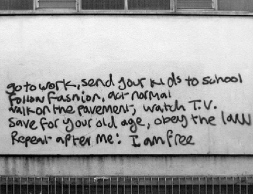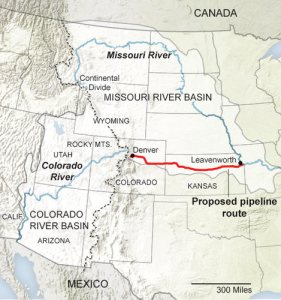Of course everything didn’t end all at once. Does no one understand the meaning of Apocalypse at all?
As a slightly-related starting point, here’s the voiceover opening montage to The Road Warrior (1981), which is one of the great film intros of all time:
—
While most people think about apocalypse as a singular event (it’s sexier that way), the reality is that we are living in apocalyptic times where a group of related crises (climate change, resource depletion, etc.) all point toward a wide-scale, gradual collapse of civilization as we know it. One of the most overlooked aspects in this dire scenario, at least beyond existing drought areas, is the increasing threat of water scarcity pretty much everywhere.
This article gets at one particular manifestation of gross negligence with regard to stewardship and so-called “development,” AND the crazy kind of solutions people come up with:
“Want some Missouri water? Colorado, get in line” – AGua, 12/19/2012
The slices of the Colorado River pie are getting cut thinner and thinner. With growing populations in southwestern cities and increased needs for irrigation, doling out the dwindling supplies of the Colorado River has reached such a dried up state that government agents are suggesting piping water from the Missouri River 600 miles across Kansas to Denver. The federal Bureau of Reclamation (part of the Department of the Interior) will be releasing a report this week proposing a constellation of options for mediating growing concern over water supplies for the ~25 million people who rely on the Colorado River, reports the NYTimes.
Words cannot….
—
Also on the water front:
“Poisoning the Well: How the Feds Let Industry Pollute the Nation’s Underground Water Supply” – Abraham Lustgarten (ProPublica, 12/11/2012)
Federal officials have given energy and mining companies permission to pollute aquifers in more than 1,500 places across the country, releasing toxic material into underground reservoirs that help supply more than half of the nation’s drinking water.
In many cases, the Environmental Protection Agency has granted these so-called aquifer exemptions in Western states now stricken by drought and increasingly desperate for water.
Scary stuff. Thanks EPA!


You must be logged in to post a comment.